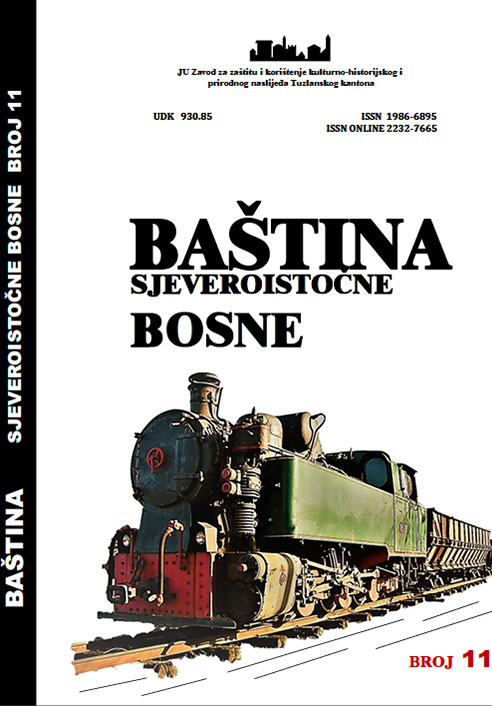ZNAČAJ DOBARA KULTURNO-HISTORIJSKOG NASLIJEĐA ZA NAUČNA ISTRAŽIVANJA O RATNIM ZBIVANJIMA U BOSNI I HERCEGOVINI (1992-1995)
THE IMPORTANCE OF CULTURAL AND HISTORICAL HERITAGE FOR SCIENTIFIC RESEARCH ON WAR EVENTS IN BOSNIA AND HERZEGOVINA (1992-1995)
Author(s): Azem KožarSubject(s): Cultural history, Museology & Heritage Studies, Military history, Recent History (1900 till today), Cultural Anthropology / Ethnology, Studies in violence and power, Transformation Period (1990 - 2010), Wars in Jugoslavia
Published by: JU Zavod za zaštitu i korištenje kulturno-historijskog i prirodnog naslijeđa
Keywords: Bosnia and Herzegovina; Bosniaks; Serbs; Croats; Serbian army; Greater Serbian policy; international community; war crime; genocide crime; cultural property; cultural and historical heritage;
Summary/Abstract: The paper gives priority to the importance of cultural and historical heritage as a source of knowledge for any scientific research - under which dominant historiographical research is most often too simplistic. This type of sources on which historical truth is based has not been given adequate attention during and after the aggression against Bosnia and Herzegovina. Such non-civilizational behaviors (authorities of all kinds and levels, institutions of culture and science, political centers of power, etc.) are contrary not only to the provisions of international, but also to the fragmented, legislation of Bosnia and Herzegovina. For the scientific interpretation of the causes and motives of the war in Bosnia and Herzegovina (1992-1995), official documents of civilian and military authorities directly or indirectly involved in war events, committing numerous war crimes and genocide crimes, are fundamental sources for the historical elaboration of centuries-old hegemonic and aggressive Great Serbian policies towards Bosnia and Herzegovina, especially towards Bosniaks as the largest indigenous people. All other sources of information are also of great importance: testimonies of event participants, mass graves of victims, photos and videos of individuals, confessions of perpetrators of war crimes, videos and written records of the enormous suffering of cultural and historical heritage - especially those of Probosnian and Bosniak provenance , as well as all other types of evidence that are only partially preserved and partly stored in institutions of culture and science. This paper points to the need to protect, collect, preserve and use all sources of knowledge about war events, especially war crimes committed, as a first-class obligation of the State of Bosnia and Herzegovina and all its administrative levels of government, academic and cultural and scientific institutions, respectively, each of her loyal citizens, because it is, among other things, their civilizing duty and obligation.
Journal: Baština
- Issue Year: 11/2019
- Issue No: 11
- Page Range: 77-92
- Page Count: 16
- Language: Bosnian

